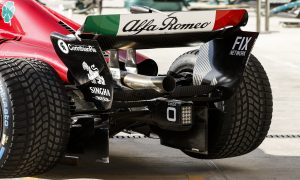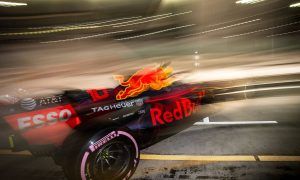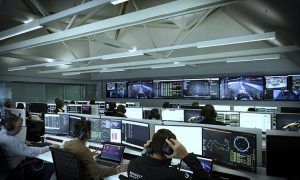F1i’s Nicolas Carpentiers uncovers the secrets hidden under the skin of the Renault-powered Red Bull RB12 by providing you with exclusives pictures and explanations.

A COMPACT AND CONVENTIONAL ENGINE ARCHITECTURE
Despite having a TAG Heuer label affixed to its name this year, Red Bull remains powered by Renault’s V6 engine. The French constructor has kept a fairly conventional architecture for its power unit, with the turbocharger forming a compact block at the back of the plant. Basically, a turbocharger comprises three main elements: the turbine, the compressor, and a shaft to link them both.
While Mercedes has been ruling the Formula One field with a split-turbo design, Renault’s compressor remains placed side by side with the turbine. Air is vacuumed and compressed in the compressor, which then sends the air to the intercooler so it can be cooled down (the white dotted line on the images above show where the air exits the compressor outlet). As for the turbine, it is propelled by the exhaust gasses entering the turbine inlet (see red dotted line).
Compared to its 2015-spec predecessor, the R.E.16 features a re-designed and more compact plenum.
Only the oil tank is attached to the front of the Renault R.E.16 power unit, which is thus devoid of any component taking part in the charging process. One can also spot the orange three-phase electric cable that connects the MGU-H – unsighted here because nestled within the ‘Vee’ of the V6 – to the battery.
Compared to its 2015-spec predecessor, the R.E.16 features a re-designed and more compact plenum. The grey caps seal the openings whereby the compressed and cooled air travels on its way to the intake manifolds.
Below is the common-rail direct injection. These systems usually feature piezoelectric injectors, which ensure fuel metering and injection timing to the cylinders with great precision.







